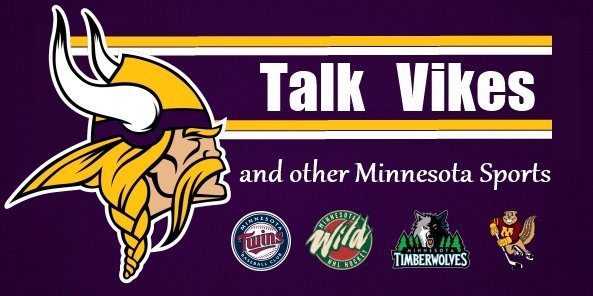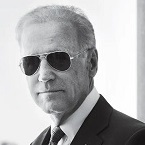djskillz
Posts: 56863
Joined: 7/17/2007
From: Nashville, TN
Status: offline

|
More good stuff from Buster:
Definition of a Hall of Famer grows murkier
By Buster Olney | ESPN Insider
MLB's all-time HR leader (Barry Bonds) and Cy Young winner (Roger Clemens) aren't in the Hall.
I was 8 years old when I got my first book on baseball, "The Baseball Life of Sandy Koufax," and as my interest in the game grew, my mother -- who actually didn't like sports -- kept finding age-appropriate books for me on the topic.
There were obtuse references to Babe Ruth's active off-field life and Ty Cobb's difficult personality. I recall reading that Grover Cleveland was a little sleepy before being called on to pitch in relief in the 1926 World Series and striking out Tony Lazzeri. Mickey Mantle and Whitey Ford were great friends, I learned, who had a lot of fun together when they weren't at the ballpark.
The details were more complicated than that, of course, but the common denominator for all of them, the reason they were written about, is that they were great ballplayers. Their accomplishments ultimately propelled them beyond what is generally considered the ultimate standard for greatness, the threshold for induction into the Hall of Fame.
But in 2015, what does being a Hall of Famer really mean?
Somewhere along the way, something has changed. It's a benchmark for something, but what that is exactly is increasingly hard to define.
Accumulating the most hits in baseball history? That doesn't make you a Hall of Famer, as Pete Rose will attest.
Hitting the most homers? Nope. Barry Bonds knows that.
Winning the most Cy Young Awards? No. Just ask Roger Clemens.
Being the greatest-hitting catcher of all time doesn't make you a Hall of Famer because Mike Piazza has failed to come close to election. One of the best postseason performers of all time, Curt Schilling, is not a Hall of Famer. Alex Rodriguez will finish his career with three Most Valuable Player awards and Manny Ramirez is regarded by a lot of his peers as the greatest hitter of his generation, and they almost certainly won't be elected to the Hall of Fame.
So is being a Hall of Famer about acing the personality criteria in the character clause (integrity, sportsmanship, character and contributions to the team(s) on which the player played)? Is this like the talent portion of a beauty contest?
Apparently not, because nobody has been more of a servant to the sport than Jim Kaat, whose candidacy has been rejected by voters almost 20 times. Dale Murphy was a two-time MVP and a great guy, and he didn't come close to being elected.
And some of the current Hall of Famers don't seem to meet the standards set forth in the character clause, if applied precisely. Gaylord Perry has made a post-career living telling everybody how he cheated. Cobb discussed throwing a game, at the very least, based on letters he exchanged with another player. Ruth and Mantle were incapacitated occasionally because of their off-field pursuits to the point of either being unavailable or compromised.
They are hardly alone, of course. Given that the Hall of Fame has inducted human beings, flaws and all, there are a lot of current Hall of Famers who wouldn't seem to meet the character clause, which, by the way, is believed to have been written by former commissioner Kenesaw Mountain Landis, at about the same time he labored to keep the sport segregated.
So is the Hall of Fame about the best players who didn't use any substances to enhance their play?
Well, no. Some current Hall of Famers have acknowledged taking amphetamines, the sort of stuff that, if taken in 2015, would cause them to test positive and be suspended. In retirement, Tony Gwynn said he believed most of his peers used what were known as greenies. Let's face it, the venue of professional sports has never been a model as a drug-free America. You'd have to be naïve to believe that the Hall of Fame hasn't already honored one or more players who used steroids in their day, and that others will follow, whether we know about it or not.
Are Hall of Famers the best players who haven't been banned or suspended, such as Joe Jackson and Pete Rose? Apparently not. Bonds and Clemens were among the 86 players thrown to the mob in the Mitchell Report, but Major League Baseball never suspended either player, and they haven't been elected.
In fact, Bonds and Clemens are club employees under MLB's umbrella, as are Mark McGwire and many others linked in one way or another to the use of performance-enhancing drugs. As far as MLB is concerned, Bonds is a citizen in good standing, unlike Rose or Jackson, and so is Clemens. And the Hall of Fame included them on their ballot, unlike Rose.
So what is a Hall of Famer?
This could be the current working definition: A player who had excellent production during his career; a player who appeared to play clean, a complete subjective matter, because there's really no way to prove exactly who used and who didn't.
A Hall of Famer is a great player who didn't add too much muscle or suffer from back acne so prominent that he draws the suspicion of writers; a great player who had the terrific good luck of not having a bitter ex-wife or trainer who turned on them; a great player who wasn't so great that he drew the attention of federal investigators.
A debilitating use of alcohol or recreational drugs is not considered disqualifying, nor is domestic abuse, family abandonment, racism, assault, alleged connection to game-fixing and other misdemeanors and felonies. But the use of Adderall without a therapeutic use exemption is disqualifying.
Got that?
The quagmire is absurd, and the Hall of Fame is not helping. Last summer, the Hall unilaterally invoked new rules related to the voting for the first time in more than two decades, reducing the time that a player appears on the ballot from 15 years to 10.
It's the prerogative of the folks running the Hall to handle the vote as they want, and only they know for sure the motive behind the change. It has been excruciating to see accomplished players such as Tony Oliva, Bert Blyleven, Goose Gossage, Jack Morris and Dale Murphy hang on the ballot year after year after year, facing the same questions annually and having the worthiness of their careers debated publicly far too long after their final games. Really, there's something incredibly disrespectful about that, and if relief is gained for some candidates through quicker resolution of the process, that's a good thing.
But Hall's rule change has been widely interpreted as a direct shot at the candidates linked to performance-enhancing drugs, because the time for the voting body to muse over PED candidates is significantly curtailed. Suddenly, the clock on Bonds, Clemens, McGwire, Piazza, Jeff Bagwell, Sammy Sosa and others is accelerated. If Bagwell is not among the candidates who gain election Tuesday -- it's expected that he won't be -- then he'll have only five years remaining to collect enough votes, rather than 10.
McGwire will have just one year left, an extremely important development, because he was the first notable player linked to PEDs to appear on a Hall of Fame ballot, and once judgment on him is final, precedent will be solidified.
Mark McGwire was selected on just 11.0 percent of the ballots for the 2014 Hall of Fame class.
McGwire clubbed 583 homers, 10th most in history, and he set the single-season record for homers in 1998, helping to revitalize the sport in the public conscience. His significance in baseball history is inarguable, and by the standards of the Hall of Fame voting through 2005, he would be a slam-dunk candidate. But McGwire has never polled 25 percent, following his admission of the use of performance-enhancing drugs, and moving forward, it will be very difficult for any voter to reject McGwire and somehow justify votes for Bonds, Clemens, Ramirez, Rodriguez and many others.
But as written here and elsewhere, the new rule may have tremendous collateral damage on other candidates such as Mike Mussina, Tim Raines and others. Nate Silver wrote last summer about how some of those players will be impacted.
And at a meeting of the Baseball Writers' Association of America at the winter meetings, voters were informed that the Hall of Fame is not interested in opening up the ballot so that writers can vote for more than 10 candidates. It's hard to understand any rationale for not letting this happen, for not simply allowing candidates to be judged on whether their careers are Hall of Fame worthy. The "Rule of 10" is completely arbitrary, as is the writers' recommendation to expand the maximum to 12.
If the Hall wants to keep the players linked to PEDs out of the Hall of Fame, perhaps because of the private sentiments of current Hall of Famers or Major League Baseball, then it should take a stand, rather than hiding behind the writers.
The reduction of the years in ballot eligibility and the retention of the character clause, which voters essentially ignored for about six decades, look more and more like a baseball version of gerrymandering.
It's worth remembering: The Baseball Hall of Fame is a baseball museum. It's not a house of holy. Those inducted haven't had to be saints, and it's time for the Hall of Fame and the writers to understand that, because if we cannot define the honor of being a Hall of Famer, then the honor is in jeopardy of losing its relevance.
There is a better way: Give the best players a plaque, and if there is important PED-related information related to their time in baseball, put it on the plaque.
Then let the patrons of the Hall of Fame decide for themselves what it means, not writers caught in the morass of voting rules that are either antiquated or Machiavellian.
_____________________________
"People ask me what I do in winter when there's no baseball. I'll tell you what I do. I stare out the window and wait for spring."
|

 Printable Version
Printable Version









 He's not gonna make it.
He's not gonna make it. 


 New Messages
New Messages No New Messages
No New Messages Hot Topic w/ New Messages
Hot Topic w/ New Messages Hot Topic w/o New Messages
Hot Topic w/o New Messages Locked w/ New Messages
Locked w/ New Messages Locked w/o New Messages
Locked w/o New Messages Post New Thread
Post New Thread